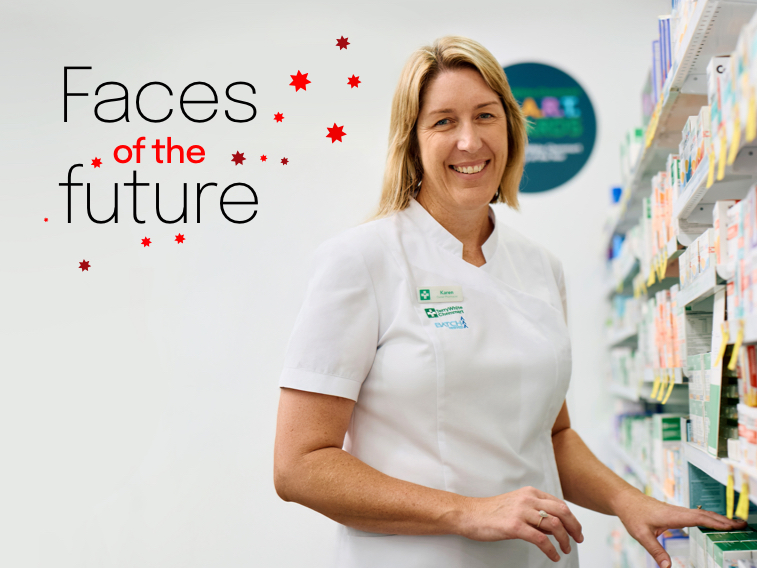Former professional netballer Karen Brown’s passion for scoring healthcare innovation goals has seen her continually break new ground.


Article
An early love of horses almost led Western Health CEO Alex Cockram to become a veterinarian but her great interest in people’s lives, motivations and their resilience inspired her into psychiatry. It’s what’s still inspiring her today.
Psychiatrist and academic Associate Professor Alex Cockram is the Chief Executive of Western Health, the organisation that provides services to the western region of Melbourne, which has a population of approximately 800,000 people, via three public hospitals, a day hospital and transition service and an array of community based programs. She says one of the keys to success is never losing sight of what the primary driver of your organisation is – your patients and their families.
Were you set on a career in the medical profession from an early age?
There was a moment where I thought I might like to do veterinary science, as I used to ride horses when I was younger, but by the middle of secondary school I was looking to study medicine.
I remember making more defined decisions later on when I went into psychiatry, my clinical specialty. I was increasingly interested in people’s lives and motivations and the extraordinary resilience and joy that they find, even when they’re at their most challenged. I did a lot of emergency work as a junior resident and people would come in, in such distress and such ill health; observing how they found strength and a way forward was what prompted my decision to become a psychiatrist. It’s still what inspires me today and it’s why I love working with people and in health.
You’ve spent many years working directly with patients. What prompted your move to an administrative role and what challenges did you face in making the switch?
I think for me it was about, ‘How do I make a greater difference for more people?’ A lot of people can contribute to leadership but a system where clinicians are at the most senior levels is most likely to stay focused on our primary role, which is to provide the best healthcare we can to all individuals in our community who are in need.
There are challenges associated with moving beyond the clinical sphere. As a clinician you’re educated to think about the individual who’s in front of you but as you move up into management, you also need to consider the broader community of patients you serve. That challenges you to start thinking about how you allocate your resources, both financial and human, to provide care effectively.
I miss the direct patient care but I spend a lot of time talking to patients and their families and to staff and I still feel very connected. That enables me to stay focused on how, as a larger health system, we can continue to make a difference where it counts the most.
As a CEO you, of course, have to operate at multiple levels but you can never lose sight of what the primary driver of your organisation is – it’s about a patient and their family.
You’re at the helm of an organisation which supports a diverse community, with a gamut of healthcare requirements. What’s the biggest issue you face in meeting patients’ needs and expectations?
Balancing our requirement to provide high quality, caring and respectful health services with the growing demand for care in our community, population growth and cost. There wouldn’t be a leader in healthcare in Australia who isn’t trying to think their way through those challenges.
The second big challenge at present is trying to join the broader healthcare system up, to ensure we give greater value in everything we do, across people’s lifespans and across the spectrum of health promotion, prevention and treatment. There are a lot of components of the system in separate silos and there are real opportunities to add value by connecting them better.
What’s the most fulfilling initiative you’ve been involved in?
There are several. Right now, one of the things we’re working on is a model for supporting patients with chronic and complex disease differently. We’re examining ways to provide high quality care and support to enable these patients to stay in the community and reduce their need to access the hospital system. It’s a big challenge bringing together various state and commonwealth stakeholders but it’s the kind of opportunity you have to pursue when you’re working in an area that’s seeing extraordinary demand and growth.
Where will your career take you next?
There’s a lot to be getting on with here in the west of Melbourne. As a leader in health, you never think you’ve got things done. If you do, you’re not asking enough questions. There’s always something to be working on and something to be doing to improve the system of care. For me it’s a great passion; it drives me and gives me energy.
More from NAB:
© National Australia Bank Limited. ABN 12 004 044 937 AFSL and Australian Credit Licence 230686.